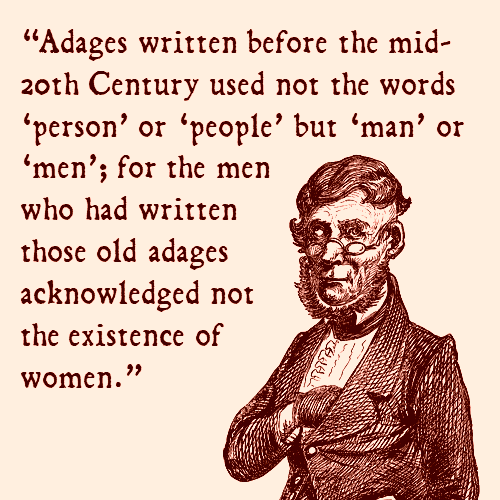
Widely-quoted old adages include: “Give a man a fish…”; “…makes a man healthy, wealthy and wise”; “a man who…” this and “men who…” that. Judging by all those old adages, it seems as if centuries had gone by in which all people were men.

Celebrating the zen of Finding Out


Widely-quoted old adages include: “Give a man a fish…”; “…makes a man healthy, wealthy and wise”; “a man who…” this and “men who…” that. Judging by all those old adages, it seems as if centuries had gone by in which all people were men.
This isn’t really true. “Man” was a gender-neutral pronoun, compounded in words like “mankind” or “human.” Plausibly it could be interpreted as devaluing of women, but that’s not its original use.
It derives from proto-German, meaning “person.” In Old English “Mann” applied to both adults and children, regardless of gender. Its first use meaning an adult male doesn’t show up in the written record until about the year 1000.
Modern German still does this. “Mann” is an adult male, but “Man” is a gender-neutral pronoun, usually translated as “one,” “you,” “someone” “a person.”
Man hat mir gesagt = Someone told me
This cuts both ways. As late as Middle English, “girle” meant a young person of either gender (in The Canterbury Tales, for example), but it doesn’t imply the non-existence of male children.